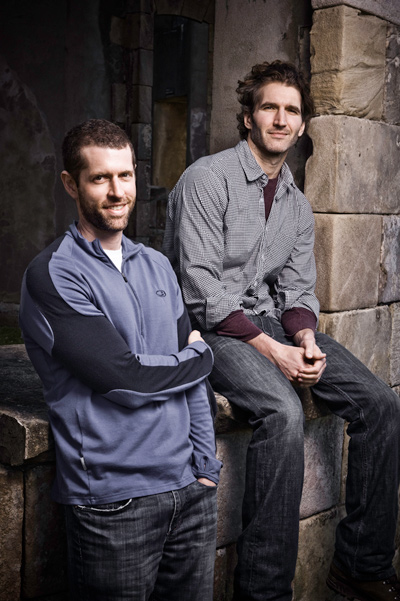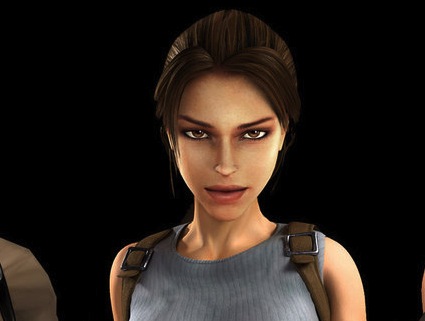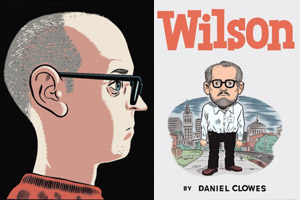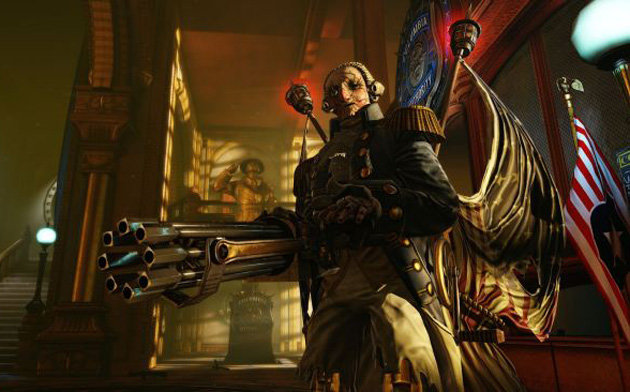
One of the deadly Motorized Patriots you'll encounter in BioShock Infinite.Irrational Games
Ken Levine has schooled millions of Americans on the flaws in Ayn Rand’s fantasies, but he’s no political pundit. The 46-year-old cofounder of Quincy, Massachusetts, studio Irrational Games made his mark as the visionary behind a series of astute video games whose Tarantinoesque violence masks subtler points. BioShock, released in 2007, imagines a corporate magnate named Andrew Ryan going Galt and building his own objectivist paradise under the ocean; his self-interested society has collapsed and descended into a Hobbesian horror that the player must escape. The game was a massive success, selling more than 5 million copies and defying the stereotype of gamers as intellectual zombies.
In late March, Irrational released BioShock Infinite, a new title set on the World’s Fair-inspired sky city of Columbia, circa 1912. Here, the ruling Founders—white nativist worshippers of America’s Founding Fathers who seek to preserve the city as a neo-Confederate paradise—clash with populist extremists called the Vox Populi who claim to represent the downtrodden. As haunted cavalry veteran Booker DeWitt, players blast their way through an extended meditation on American exceptionalism and a critique of our idealized past in their quest to rescue a mysterious character named Elizabeth. (The only thing missing is a college syllabus.) I spoke with Levine about growing up nerd, mining history for narrative, and the media’s paternalistic view of his industry. But first, to get a taste, watch this short commercial for the game:
Mother Jones: Nerds seem kind of cool these days. Does “nerd Siberia,” as you describe the emotional state of geek isolation, still exist?
Ken Levine: There is this thing going on now, which is really baffling to me: A lot of guys are challenging women who claim to be nerds as to the veracity of their nerd cred. Man, when I was young, if there was any woman who wanted to be anywhere near us, we would be thrilled! I think people should count their blessings.
MJ: You attended Vassar College. Was that nerd Siberia or nerd-vana?
KL: When I was there? Siberia, man. In terms of like video games and stuff, there was nothing going on.
MJ: They have a nerd group there now.
KL: Well, they have a Quidditch team. Once you have a Quidditch team, the juries come back in and give the verdict.
MJ: They also have a group called the Non-Human Student Association.
KL: [Laughs.] I’m sure even at Yale they’ve got a fair amount of people running around and hitting each other with rubber swords.
MJ: Has nerd culture gotten so mainstream that it now includes the people who used to mock the nerds?
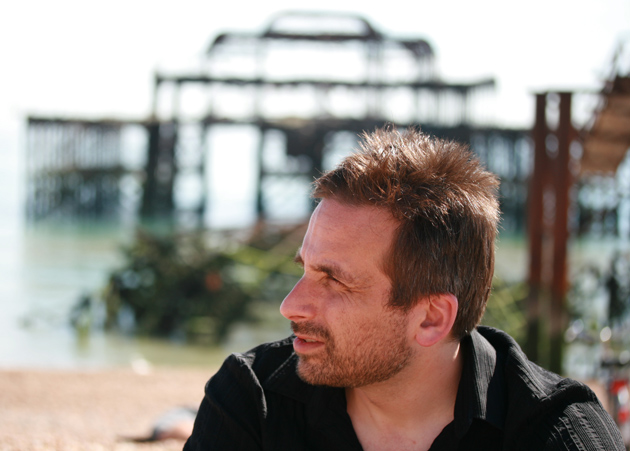
KL: It’s intensely mainstream. When I was a kid, The Avengers was a 30-cent comic book that I used to read intensely and was a huge fan of. Now it’s the No. 1 intellectual property in the world.
MJ: Do you think having been socially ostracized can blind nerds or geeks to their own intolerance of people who are different?
KL: I wish the community was more inclusive. I don’t just mean of LGBT or anything, because that’s an issue everywhere. But just in general there’s a lack of joy going around in nerdery that’s kind of a bummer. Not to be all “the good old days” about it, but when I was younger, anyone who really wanted to join was very welcome. When I had my Dungeons & Dragons group in high school, there were some odd ducks—I was one of them. Beggars couldn’t be choosers. Maybe 10 years ago I started seeing some degree of hostility—people who refer to my name or talk about the product [online] and say negative things, violent things, anti-Semitic things. I think if you met them in person, a lot of these people would be ashamed to talk that way.
MJ: You were one of very few Jewish kids growing up in Upper Saddle River, New Jersey. How much of your hometown did you project onto Columbia?
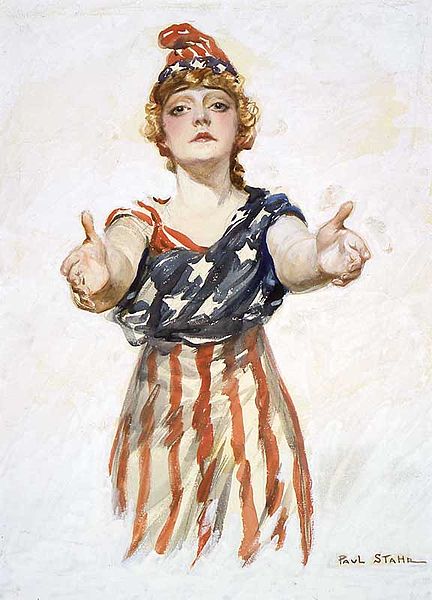
KL: To say that my hometown was anything like Columbia would be the grossest of exaggerations. I got some harassment as a kid, but not in a way that was permanently damaging. Anti-Semitic comments were just a small portion of it, along with comments about my speech impediment, comments about my interests, comments about my acne. Columbia is more based on history than anything I grew up with.
MJ: You’ve probably ruined the chances that Columbia, America’s feminine national symbol, will experience a comeback. I don’t know if I can forgive you for that.
KL: I know, I know. Somebody I work with brought me a period poster with this great image of Columbia on it, and it’s awesome, but Uncle Sam came along right after that and kicked her out of the picture.
MJ: Your first game dealt with libertarianism, but BioShock Infinite seems more overtly political, and inspired by specific conflicts and periods of American history.
KL: Political implies a specific agenda. I think it’s more historical. If you read the history of Jim Crow, the history of chain gangs, how the Irish were treated, how the Chinese were treated, Columbia’s a fairly accurate representation—besides all the floating city stuff—of certain parts of the country in that period. We were really looking for specific aspects of history, rather than something as intensely politically driven as objectivism.
MJ: What period is the game based on, mainly?
KL: There are aspects that are pretty accurate to the turn of the 20th century. There were a reasonable number of African American representatives in Congress in the post-Civil War period and that declined by around the turn of the century. You had things like the amendment that abolished slavery but allowed it in the context of people convicted of a crime; they could be compelled to work for nothing. There was essentially an economic incentive to put people in prison and then sell their services to businesses, on chain gangs, etc. There was a documentary about it just recently called Slavery by Another Name.
MJ: Fantastic book, too! So, Zachary Comstock, your primary villain, combines an extreme form of Christianity with deification of the Founding Fathers. What’s that about?
KL: The idealization of the history of America and the Founders is something that’s happened in politics all along. They were fascinating people—brilliant men, political geniuses, and men of complexity. But they were also men of their time who held very blinkered views of women, and African Americans and most other races. There’s a tendency to—whatever side you’re on, the Founding Fathers are on the same side. That can be a dangerous way of thinking. People tend to take their names in vain and ignore what makes them interesting and complex.
MJ: Who was your inspiration for Comstock?
KL: In the first game, Andrew Ryan is the Howard Hughes-type figure mixed with the Ayn Rand-type figure. Comstock is much more of a mix: There’s a bit of Joseph Smith in him, a bit of Teddy Roosevelt. I don’t think there was a particular philosopher in the same way that Rand obviously was a driving force behind Andrew Ryan. For instance, Roosevelt was a very progressive figure in many ways. But he was also what you’d probably call a neoconservative in his view of America’s role in the world. So I have trouble comparing Comstock to him directly. Also, I’d have trouble just comparing Comstock to Joseph Smith or Brigham Young. I mean, the American-centric nature of the religion that he forms has some similarities to Mormonism, but there’s nothing in the Mormon church that approached the level of sinisterness you’d find in a Comstock.
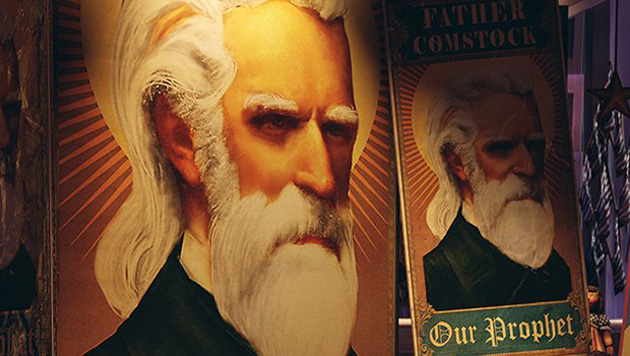
MJ: What about your Vox Populi: Were they intended to evoke the war on terror, or perhaps something more akin to anarchist terrorism of the early 20th century?
KL: I definitely wasn’t looking to mirror the war on terror. Probably the most similar thing to the Vox Populi is the Red Army faction in Germany in the 1960s and 1970s. They started off as a very idealistic movement that was frustrated with the number of former Nazis in the West German government. And as the government started cracking down violently, the Red Army faction started responding in kind and the stakes kept going up and up. And the original intent of the movement got very lost.
MJ: When you created Elizabeth, the crucial companion character in the player’s quest, were you responding in some sense to the limited range of women characters in games?
KL: Not at all. I don’t have any ax to grind: I don’t want to see more black characters, white characters, Jewish characters, gay characters, straight characters—I want to see more interesting characters. We’re beholden to that principle above all others.
MJ: You ask a lot of your players, intellectually. Have you encountered any skepticism about including all of these complex themes?
KL: The only people who seemed to question it was the gaming press, and the mainstream press, to some degree. There’s a certain aspect of looking over gamers’ shoulders still, and saying, “Hey, is it okay to approach a topic like that?”—a question people would never ask a novelist or a film director. It’s a reasonable to ask, “Was the topic handled responsibly?” But anything that’s fair game for any other form of media should be fair game for a video game.
MJ: How much of your audience is there for the narrative, versus new and fantastic ways to blow shit up?
KL: I don’t know. I mean, look, I watch The Sopranos, I watch Goodfellas. I’m interested in the incredibly dark, violent side of it, and I’m also interested in the sort of culture they’ve created around this very violent lifestyle, and how that society holds itself together.
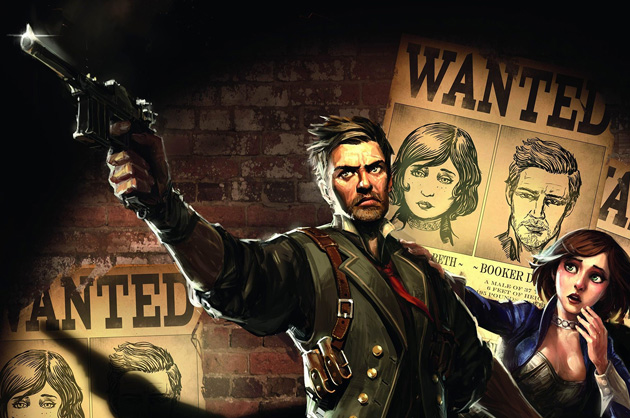
MJ: Do you think of video games as art?
KL: It’s never been a discussion that particularly interested me. I think what people are really asking is, “Should I be embarrassed to play it? Will my mom think it’s okay if I play it?” Generally, I think something that you enjoy that doesn’t have practical benefit is art. I don’t think there’s a qualifier as to quality, necessarily.
MJ: The late Roger Ebert once said “video games represent a loss of those precious hours we have available to make ourselves more cultured, civilized, and empathetic.” It seems like you guys try to challenge gamers to be all of those things. But might all the violence inhibit that?
KL: Some of the best stories of all time have been extremely violent. If the audience responds in a positive way, then the artist is doing something correct. In terms of Ebert, I think it’s very difficult when you’re invested in another form. When movies came along, they weren’t considered art—they were sort of vulgar. Same with novels and jazz music. All new forms are considered vulgar by people who have an investment in other forms. My hope is when I’m older, when new forms come along that I don’t quite understand, that I’m not pooh-poohing them. I don’t really see the point. If people find it valuable, it’s valuable.
Watch: Irrational Games’ fascinating video about how Elizabeth came into being.

